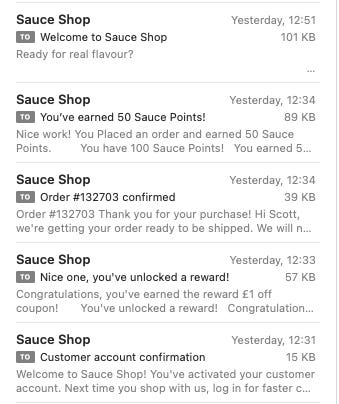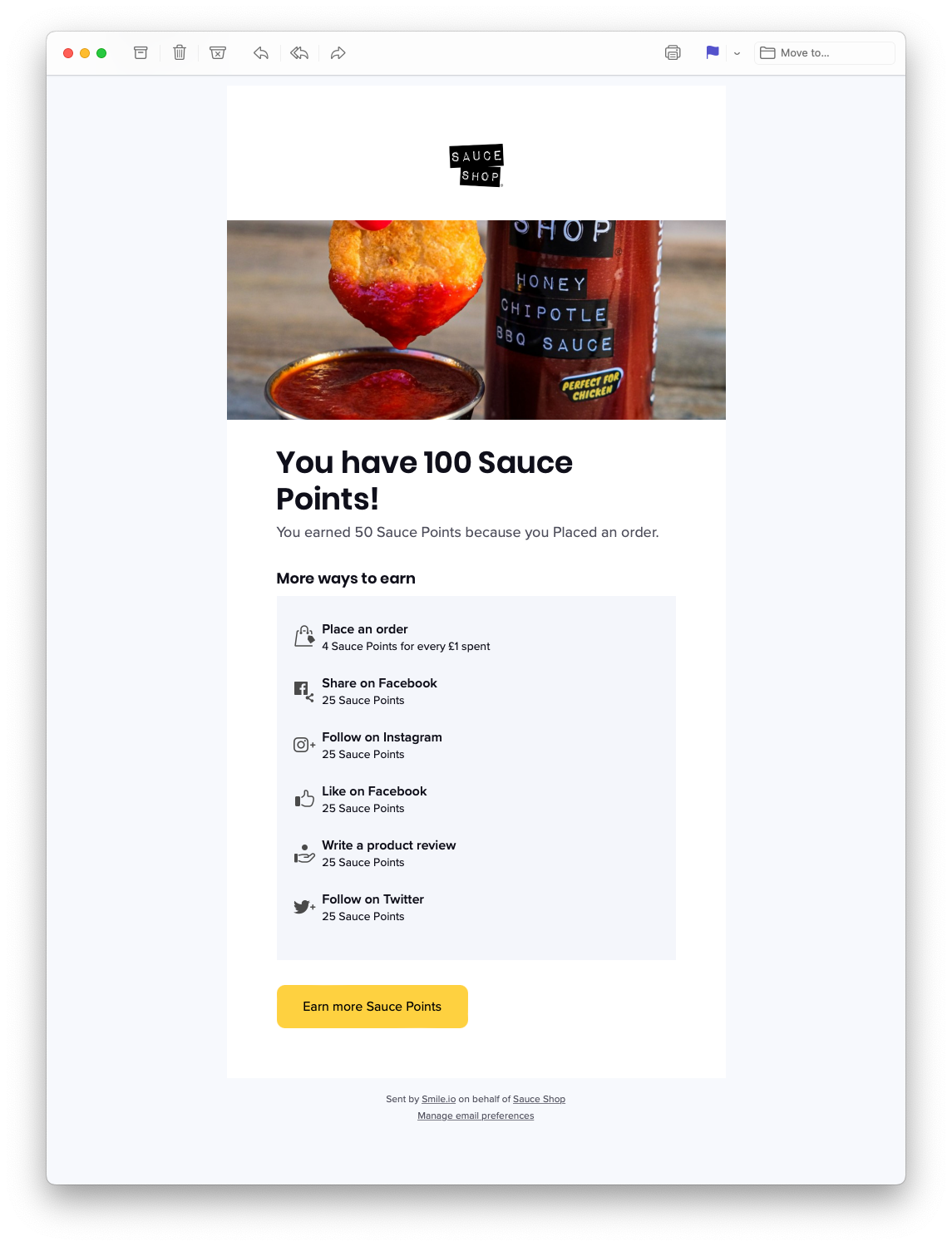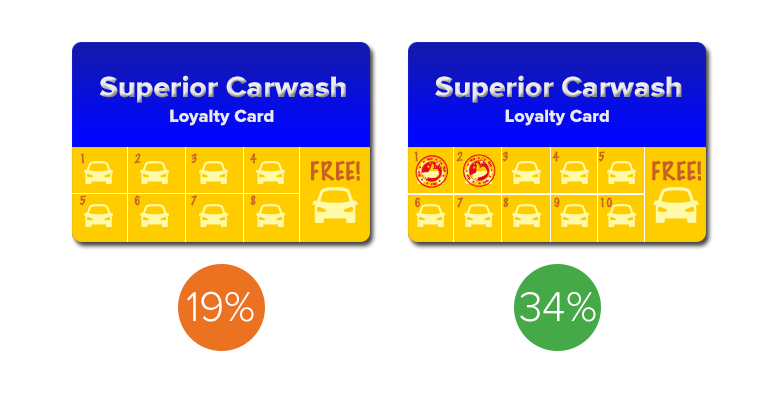05: I bought some sauce, and now they're trying to make me buy some more

Five emails in, and still we go.
It’s getting to that time of the year when some of my training contracts pause for a few months. Experience has taught us that a lot of business owners don’t turn up to training during school holidays, so we’ve started pausing them at key times of the year.
This means once the next two weeks are out of the way I’ve got a surprising amount of time when I won’t be teaching. This should allow me to complete a few lingering projects over that time, which I’m looking forward to. I’m also planning on a few days off over the summer holidays for family time - one of the self-employment perks.
In terms of what I’m working on at the moment:
- Ongoing training across 4 contracts.
- 3 website projects at various stages (mostly more than 60% done).
- Looking after 4 Google and Facebook ad account.
- Trying to find the time to develop Marketing Gifts and my main Inform, Educate, Entertain product.
- Ongoing running of The Online Rule, including planning for a live event (hopefully) later this year.
But that’s not the point of this week’s email.
Yesterday, I bought some sauce.
Points make prizes
I’ve been getting adverts for the Sauce Shop on Instagram for a while now. I’ve had their sauce before - as a Christmas present - and I think the tomato sauce might be the best I’ve ever had. This is an exciting start, isn’t it?
I did the usual newsletter subscription to get a little discount. In doing so, I was also enrolled into their sauce points system.
It’s pretty simple: carry out some actions, get some points, redeem them for money off. It’s standard referral stuff. If you’re not trying to re-engage customers by getting them to do your marketing for you you’re missing a pretty obvious trick. Social proof is a powerful driver of behavioural change. In short, we like it when the risk is reduced from using a new product or service because it’s been recommended to us.
Anyway, back to the sauce.
Firstly, I’d argue they sent too many emails straight off the bat.

But look 👀 I’ve unlocked a reward! I’ve got 50 points! Of course I was going to check this out.

Turns out there are all sorts of ways to get more sauce points. One is by placing an order - clever, it’s the quickest way to build them - but others are from sharing, reviewing, and just following the company.
They’ve also got a nice referral system. Each user gets a 25% off voucher to share with others. Mine’s here if you fancy some sauce (NB: I am not endorsed by these guys in any way, I just like the scheme and the sauce).
The psychology of loyalty schemes
The psychology behind this is pretty obvious: people like free stuff, and they like being rewarded for doing things. We get the figurative belly rubs.
But Sauce Shop have one additional layer that I love: just signing up gets you 150 points. That’s enough to get £1 off. Straight away we’ve seen the loyalty scheme in action. Starting people off on their journey - rather than them beginning at zero - invokes the Endowed Progress Effect. This is a cognitive bias, which is a way of bypassing the rational part of peoples’ thought processes so that they take action with less consideration.
“I’m already some of the way along, so I might as well use this”
People are completionists (not a word, but whatever). My son wants all the Paw Patrol characters because his set isn’t finished without them. And of course they’re all sold separately. Panini sticker books work the same way; you get the first pack free with the sticker book. Once you’re at a certain point it’s easy to continue than to give up.
Research has shown that loyalty cards that have a few free stamps on from the start are completed quicker. Even if they have the same number of steps as the ones that don’t.

This also works because we don’t like losing things we already have.
Loss aversion
In 2003 Italy introduced a driving licence points system for drivers who broke the law. But rather than gaining points, which was the traditional way, they started removing points. All drivers started at the same level - 20 points - and gained two points every year for not breaking the law, up to a maximum of 30.
If they break the law, they have a number of points deducted until they lose their licence.
One study looked at data on road accidents, traffic fatalities and driving offences that took place between 2001 and 2005. It found that the introduction of the new system led to a reduction of 10% in road accidents, and 25% of traffic facilities.
You can read the abstract here, and download the full paper if you feel up to it.
While I’m not suggesting anyone sets out with the aim of getting as many points on their licence as possible, the feeling of losing something is stronger than that of gaining something. We simply don’t like losing what we have.
To use this, you could try setting deadlines of how long someone can have points on a card or use theirs for. A simple “must be redeemed within 6 months” message could encourage them to take action. It’s why a lot of discounts are time sensitive. But if you’re trying to encourage repeat purchases through a loyalty system then looking at how to apply loss aversion could be useful.
Further reading
How do you deal with people cancelling their subscriptions from your products? And can you do anything to bring them back?
It’s better to do two things well than five things badly.
Do you need to be on every social channel? Probably not. Here’s a guide to figuring out which ones you should be bothering with, so that you can stop using the rest.
Has this been any good? Feel like you need to tell the world? The button below does exactly that.




